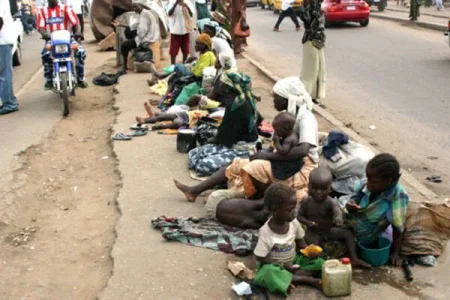
Abuja faces a growing crisis of street begging, driven by poverty and displacement from conflict zones. Despite government efforts to manage the situation, beggars—ranging from children to the elderly—continue to flood the streets, raising concerns among residents about safety and the effectiveness of rehabilitation programs.
In Abuja, the capital of Nigeria, street begging has become increasingly prevalent, with beggars seen at major intersections, malls, and public spaces. Despite efforts by the Abuja Environmental Protection Board (AEPB) and the FCT Social Development Secretariat to manage the situation, the number of beggars continues to rise, largely due to poverty and displacement from conflict-ridden northern states. Many of these individuals have fled violence from insurgency and banditry, seeking refuge in what they perceive as a safer environment.
Interviews with beggars reveal harrowing stories of loss and desperation. For instance, some women begging with children are widows who lost their husbands to violence, while others cite job scarcity as a driving factor for their plight. The AEPB has acknowledged the challenges in controlling the increasing population of beggars, stating that despite ongoing efforts, their numbers persist. Residents express frustration, noting the sometimes aggressive tactics of beggars and incidents of theft, which complicate their willingness to offer help.
Efforts are underway to rehabilitate beggars, with plans to expand facilities, but many believe more comprehensive solutions are needed to address the underlying issues of poverty and insecurity that fuel this growing phenomenon.
Credit: Daily Trust




